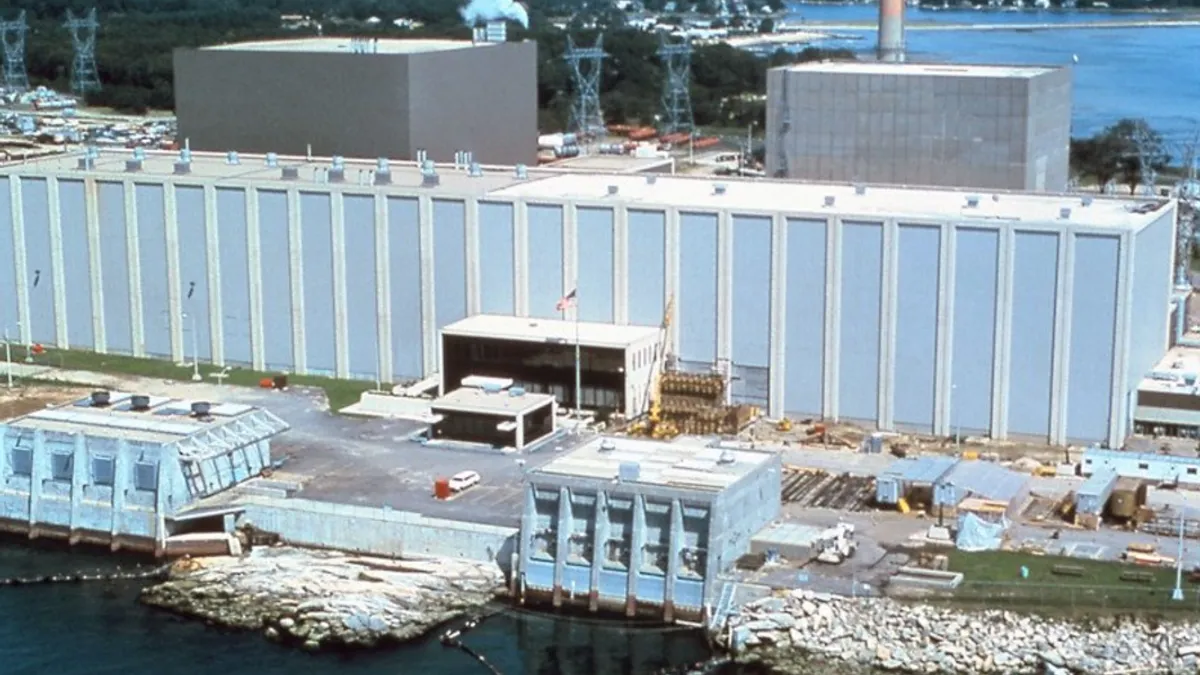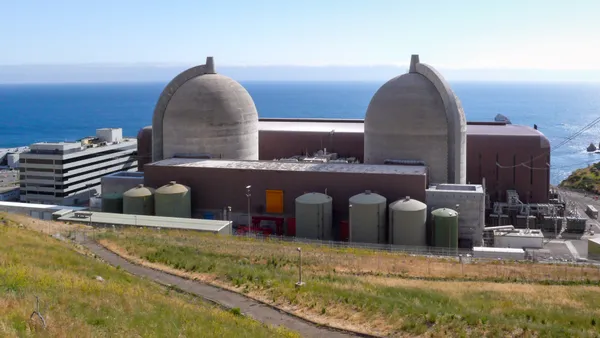Dive Brief:
-
Dominion Energy is taking a second shot at getting state support for its Millstone nuclear power station in Connecticut, local media outlets report.
-
The utility holding company wants to insert language from a failed legislative effort into the state's pending budget bill. In June, the state Senate passed a bill directing utility regulators to assess whether to hold a competitive procurement for nuclear energy, but it never came up in the House.
-
Dominion’s efforts are being countered by a group of generators who sent a letter to Connecticut legislative leaders, saying the proposed supports would be costly and unnessary.
Dive Insight:
Despite a last-minute push from Dominion and a 23-7 vote in the Senate, the Connecticut House of Representatives in June failed to pass a bill that would have directed energy officials to evaluate whether to hold a special power procurement process for the sole nuclear plant in the state.
The regular legislative session has now ended, but lawmakers are still at the Capitol for a special session on budget matters, allowing Dominion a second bite at the apple.
Company spokesperson Ken Holt told the New Haven Register the company remains “committed to work with policymakers to address the issue of high energy prices and the future of Millstone in the current budget session.”
Opponents are equally adamant in their resistance. In a letter to lawmakers, a group that includes Avangrid, Dynegy, Calpine, the Electric Power Supply Association, Competitive Power Ventures, Eversource Energy, and NRG Energy said that financial support to Dominion could cost ratepayers $300 million a year.
Noting an MIT working paper that listed Millstone as the nation's most profitable nuclear plant, the group wrote that Dominion "has offered no evidence that it needs a special deal from the state in order to remain economically viable."
Dominion fired back in a letter to Gov. Daniel Malloy (D) and key lawmakers, saying the generator letter is “further proof” that its opponents “are purposefully misleading policymakers.”
Dominion argued consumer electricity costs would actually be higher through 2030 without the nuclear plant and that many of the other facilities listed as profitable in the MIT report are under financial pressure to retire as well.
The company also dinged Connecticut's regulated distribution utilities, Avangrid and Eversource, for signing on to the letter opposing the nuclear provisions, noting that its utility subsidiary in Virginia and North Carolina produces power at significantly lower rates.
The Connecticut utilities have "continuously failed" their customers by not lowering rates, Dominion said, though prevailing electricity rates are determined by a number of factors, including state policy and regulatory decisions, some of which are out of a utility's control.
As the companies argue, a decision has not yet been made regarding the inclusion provisions for the Millstone plant in the budget implementation bill.
“The issue is still being discussed,” Larry Perosino, a spokesman for Speaker of the House Joe Aresimowicz told the Register.














